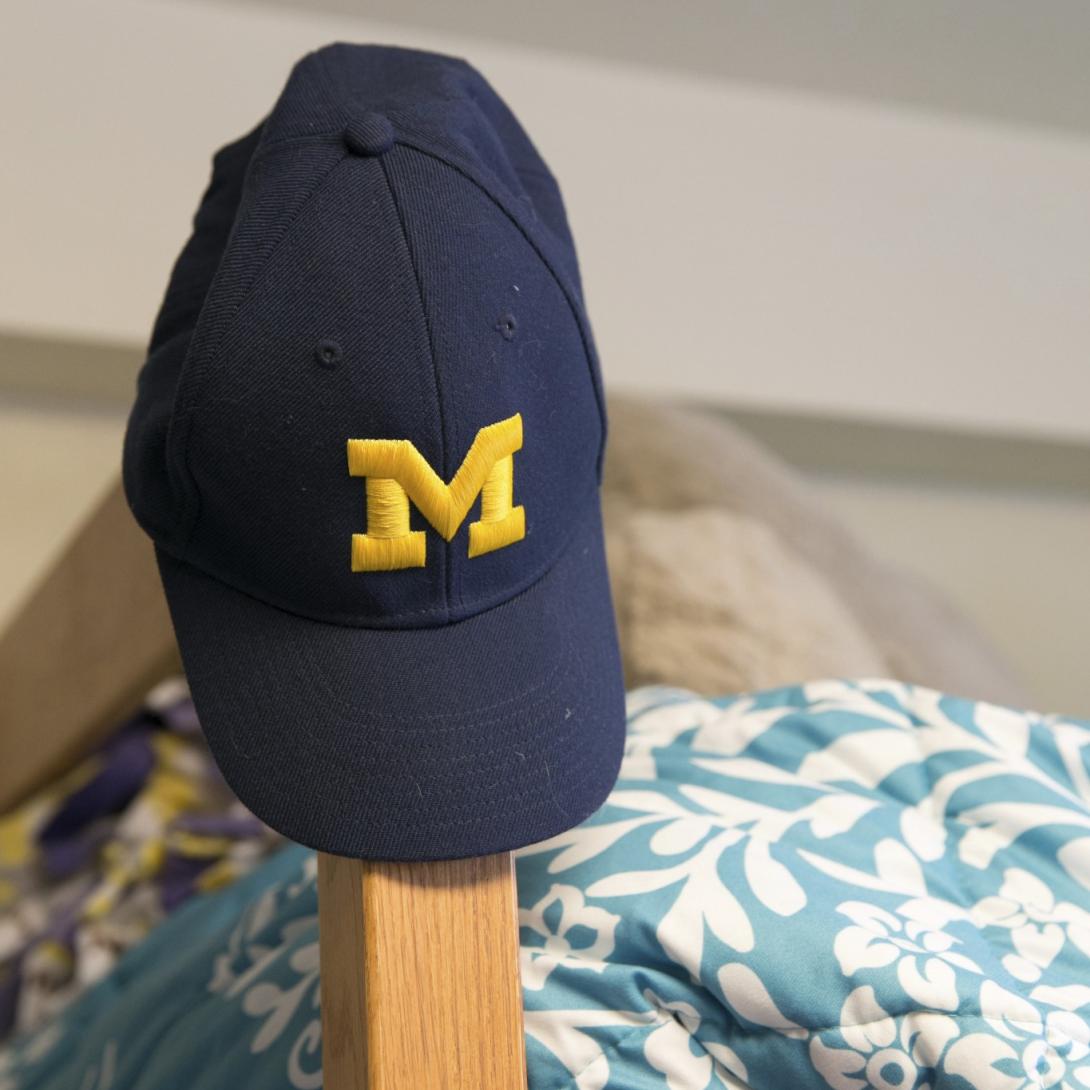Current research suggests that parents can help reduce students' high-risk drinking. Evidence-based strategies to positively influence students' use of alcohol include:
- Talking together about drinking
- Being a positive role model
- Strengthening your relationship
Talking together about drinking
Studies show that conversations between parents and students can lead to better decision-making regarding drinking. Conversations can explore what you each know, as well as each of your values and expectations. Suggestions for those conversations include:
- For first-year students especially, ask what they learned from First-Year Experience required courses: AlcoholEdu and Sexual Assalut Prevention for Undergraduates.
- Ask "What if…?" Imagine hypothetical situations, including potentially sticky situations, or use current events, to help you and your student explore values and expectations in a non-threatening way.
- Consider that in a recent study, 28% of U-M students didn't drink in the past 30 days, which amounts to more than 12,000 students on campus (source: 2016 U-M National College Health Assessment). Non-drinking activities such as athletic events are readily available to students.
- Help them develop realistic strategies. Avoid recommendations that are general and hard to interpret, such as "Be safe" or "Make smart choices." You may want to refer to How U-M Students Stay in the Blue.
- Acknowledge the potential legal consequences for students who drink. What You Need to Know about Laws, Policies and Ordnances can help you and your student learn about what's legal and what's not.
- If your student has experiences or values that diverge from your own, you may understandably be concerned. However, such divergence is, to a degree, normal and to be expected as they develop autonomy, a critical developmental task of college students. If your student diverges from your expectations, you may want to clarify that they will need to navigate any negative consequences of their actions, and talk about how you would want to handle being notified of an alcohol or other drug-related event via Parent/Family Communication regarding Alcohol and Other Drug Harm.
- For other conversations starters, see the FAQ for Parents.
Being a positive role model
Students often look to parents for affirmation and approval of their interests and achievements. Your opinions and actions matter to your student, whether related to college choice, career aspirations or lifestyle choices.
Likewise, your attitudes and behavior toward drinking could influence your student's decisions about drinking. Studies of parents and college students show that:
- Parents' permissiveness of underage drinking, approval of high-risk drinking behavior, and/or parents' own high-frequency drinking patterns are associated with higher consumption and negative consequences among college students. Emphasizing the social connection and promoting an event without glorifying high-risk behavior is an example of how aptitudes and behaviors can show up.
- Mixed messages lead students to have higher rates of consumption. For example, some parents may purchase alcohol for their underage student for a tailgate, but then lecture the student about receiving a Minor in Possession ticket.
- A family history of alcohol misuse increases a student's risk of heavy drinking. Discussing family history of alcohol misuse with your student is important.
Strengthening your relationship
Students report that they consult their parents more than any other source of social support, and strengthening your relationship can benefit your student well beyond consideration of drinking. Tips for cultivating a stronger relationship include:
- Ask about your student’s experiences on campus, such as:
- Inquire what your student does during free time and how relationships with friends and roommate(s) are going.
- Ask about plans for high-risk events such as home football games, Halloween, Fraternity and Sorority rush and birthday celebrations, especially 21st birthdays.
- Refer to the MParents Calendar to better understand what your student may be experiencing, even if your student is not a first-year:
- Schedule a regular time to talk on the phone or video-chat together, even if you text often. You'll learn more about how they’re doing by hearing their tone of voice in real time.
- Ask for their advice and opinions about things going on at home and campus.
- Look for ways to affirm your student holistically, instead of only their academic achievements. Show appreciation for their autonomy and self-regulation, including making decisions that reflect critical thinking, seeking appropriate help, and developing a value system that is based on their individual goals and desires.
- Allow for an evolving balance between supporting your student’s independence and fostering connection, without adding to their stress. This might best be done with a "yes, and" rather than an "either/or" approach, and it can be a tricky but necessary balance to work out together.
This New York Times article, For Freshmen, Campus Life Poses New Risks provides more suggestions for parents.
And recommendations obviously can't ensure success. Families are unique, and even with the best conversations, role models and relationships, students may experience problems. If that happens, or if you'd like to brainstorm ways to help your student, you may wish to contact the Program Manager for Parent/Family Communication regarding Alcohol and Other Drug Harm or email [email protected].
To help Student Life continue making a difference in students' lives, please consider making a gift.

